Nanotechnology focuses on materials with a length scale of 1 to 100 nm, where traditional disciplines as physics, chemistry and engineering converge. It is the ability to control the structure of matter on that small scale, that allows us to develop novel materials and products, which will impact a wide range of application areas.
Nanotechnology is beyond doubt the technology of the future .
Nanotechnology is beyond doubt the technology of the future and is prospected to offer novel solutions to the grand challenges we face today: (green) energy harvesting, information technology, homeland security, clean water, sufficient food production, but also new avenues towards treatment of human diseases, such as cancer, neurodegenerative diseases, diabetes, etc.
Saxion is the first University of Applied Sciences in the Netherlands with a research group in Nanotechnology. Its activities embody Saxion’s vision of a strong profile in Living Technology.
NanoBioInterface
The aim of this research group, headed by dr. Martin Bennink, is on initiating and performing high-level application-driven research in nanobio, the area where nanotechnology and life sciences meet. Topics of projects within the group are lab-on-a-chip technology, synthesis of nanomaterials for various applications, such as magnetic hyperthermia and antibacterial nanocoatings, biomimicry, assay development for blood screening and nanoscale chemical and structural characterization of nanocomposites.
Nanotechnology service centre
The Nanotechnology research group serves as a meeting point for students, staff, researchers and industry. The department acts as a low-threshold service center, where students and industry can use nanotechnology-specific equipment and can work jointly on advanced research projects. A total project cycle is implemented, from conceptualization through product patent to development. Students of the nanotechnology study program are actively encouraged to contribute.
More information on this project will follow soon.
Duration
The project runs from 1st October 2017 until 30rd September 2019
Project manager: Peter Schön, E: [email protected]
More information on this project will follow soon.
Foundries (aluminium, steel and iron) use moulds, in which the metal is poured in in liquid form, in order to take on the shape of the mould. These molds are produced with sand and a so-called binder. Usually this binder is an organic compound, which often is toxic. Especially in case of metal casting this results in the release of highly toxic substances in gaseous form. In this project GietechGo we aim to introduce inorganic binders in three different foundries in the provinces of Overijssel and Gelderland in the Netherlands. Read more
Organ-on-a-chip technology holds great promise to revolutionize pharmaceutical drug discovery and development which nowadays is a tremendously expensive and inefficient process. It will enable faster, cheaper, physiologically relevant, and more reliable (standardized) assays for biomedical science and drug testing. In particular, it is anticipated that organ-on-a-chip technology can substantially replace animal drug testing with using the by far better models of true human cells.
Despite this great potential and progress in the field, the technology still lacks standardized protocols and robust chip devices, which are absolutely needed for this technology to bring the abovementioned potential to fruition. Of particular interest is heart-on-a-chip for drug and cardiotoxicity screening. There is presently no preclinical test system predicting the most important features of cardiac safety accurately and cost-effectively.
The main goal of this project is to fabricate standardized, robust generic heart-on-a-chip demonstrator devices that will be validated and further optimized to generate new physiologically relevant models to study cardiotoxicity in vitro. To achieve this goal various aspects will be considered, including (i) the search for alternative chip materials to replace PDMS, (ii) inner chip surface modification and treatment (chemistry and topology), (iii) achieving 2D/3D cardiomyocyte (long term) cell culture and cellular alignment within the chip device, (iv) the possibility of integrating in-line sensors in the devices and, finally, (v) the overall chip design. The achieved standardized heart-on-a-chip technology will be adopted by pharmaceutical industry.
This proposed project offers a unique opportunity for the Netherlands, and Twente in particular, which has relevant expertise, potential, and future perspective in this field as it hosts world-leading companies pioneering various core aspects of the technology that are relevant for organs-on-chips, combined with two world-leading research institutes within the University of Twente.
Duration
The project runs from 1st March until 28th February 2019
Project manager: Peter Schön, E: [email protected]
More information on this project will follow soon.
Duration
The project runs from 1st October 2016 until 31st March 2018.
Project manager: Ron Gill, E: [email protected]
More information on this project will follow soon
Duration
The project runs from 1st April 2016 until 31st March 2018.
Project manager: Gerald Ebberink, E: [email protected]
Project coordination: Jonathan Montanes, E: [email protected].
Sensors based on nanotechnology
Sensors based on nanotechnology are considered being a technology that can contribute to the quality of and reduction of costs in our health care. Due to their extreme sensitivity, this type of sensors is capable of giving a diagnose quickly yet accurately, using only a small quantity of sample from blood, saliva, breath of urine. This creates additional possibilities next to existing, often more extensive analysis techniques. Read more
More information to follow
More information to folllow
More information to follow
- Antibacterial nanostructured surfaces
- BIOFOS
- Characterisation of medicine mixtures
- Future pipe
- Textile in health care
- Magneto hyperthermia
- Spectra@Phone
- Cost effective lab on a chip technology for SMEs
- Nanotechnology from lab to industry
- Innovation photonics education (continuation)
- Innovation photonics education
- EU Cost action
Why study nanotechnology?
Nanotechnology today plays a very important role in our lives and will undoubtfully increase its impact in the future. Whether in food, medicine, the environment, cosmetics or electronics, nanotech is the technology of the future! Consider the iPod, chemotherapy without side effects, self-cleaning glass windows and scratch resistant automotive paints. These are all nanotechnology enabled products. None of these would be there without nanotechnology. This is the reason why you want to study nanotechnology.
Nanotechnology specialization
If you are studying a BSc course in Biology and Medical Laboratory Research, Chemistry, Electrical Engineering, Applied Physics or Mechanical Engineering at Saxion, you may decide to take on the Nanotechnology study program, as a specialization within your BSc program. From the third year of your BSc course, you will dive into the world of nanotechnology. This implies taking a number of subjects in nanotechnology, doing a Living Technology project at one of the Nanotechnology lectorates, and choosing a nanotechnology-related subject for your internship and final thesis work.
MSc Applied Nanotechnology
You can also go for the MSc Applied Nanotechnology course. This involves a 2-year MSc-level training in different subjects of applied nanotechnology research including numerous hands-on practicals (including cleanroom work) and projects related to ongoing research work in the research groups NanoBio and NanoPhysicsInterface.
See the Equipment page for the equipment used by the research group NanoBioInterface.
News about this research group
Contact
The Nanotechnology research group and the study programme Nanotechnology are part of the School for Life Science, Engineering & Design of Saxion.
The team
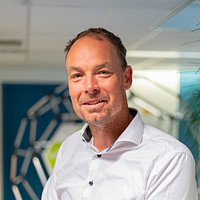
dr. ir. Martin Bennink
Lector Applied Nanotechnology
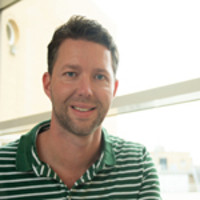
Erwin Nijhuis
Lecturer/researcher NanoBio
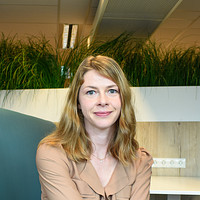
Michelle Fleermann, MSc
Lecturer/researcher/project leader
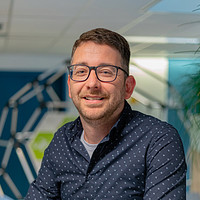
Maarten van Rossum
Researcher/lab manager

Nicole Zeijen, PhD
Promovendus
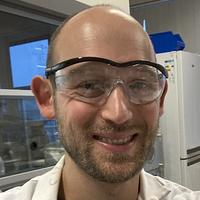
ing. Roy Bulthuis
Researcher NanoBio
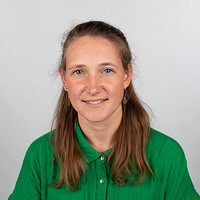
Verena Schulze Greiving
Docent/hoofdonderzoeker Ethiek & Technologie
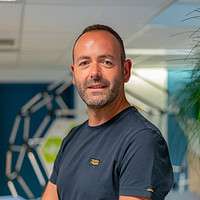
Jonathan Montanes, BA
Project leader
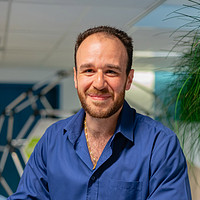
Tony Gouriye, MSc
Lecturer/researcher
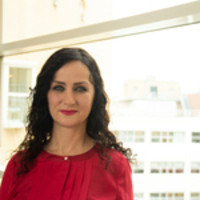
Alma Dudia
Researcher NanoBio
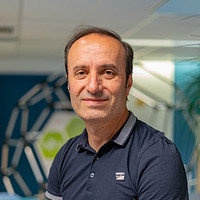
Aurel Ymeti
Senior researcher/project leader
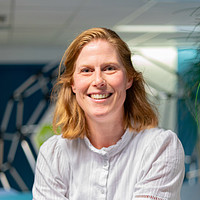
dr. Floor Wolbers
Senior researcher/lecturer/project leader